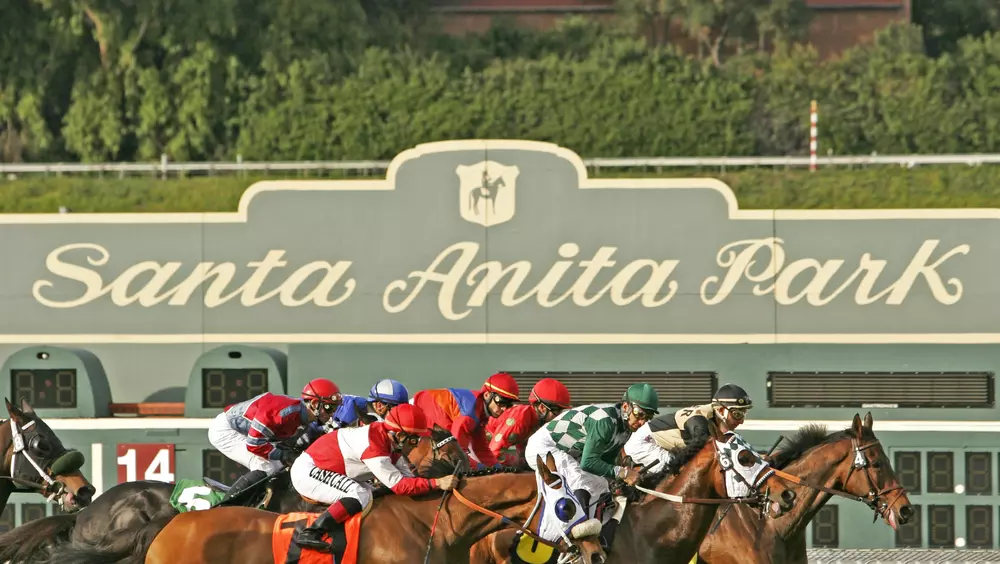2019 has been a tumultuous and tragic year in American horseracing, and as today brings the season to an end, The Breeders’ Cup will crown its 36th World Champion of Thoroughbred Horseracing at Santa Anita Park in Arcadia, California.
The average American might recognize the track from the award-winning movie Seabiscuit — a legend who won the Santa Anita Handicap in 1940 — but the vast majority of Americans and even Californians may never see or attend a horse race at the historic venue established in 1934.
California Governor Gavin Newson may have said it best in a September interview with The New York Times when he put California horse racing on notice: “I’ll tell you, talk about a sport whose time is up unless they reform. That’s horse racing. Incredible abuses to these precious animals and the willingness to just spit these animals out and literally take their lives is a disgrace.”
That’s a pretty strong statement from the leader who represents the 5th largest economy in the world, and the state that has been known as one of the more forward-thinking horseracing states in the country with pretty tight rules – until this year.
Year to date we’ve seen 36 horses die on the track at Santa Anita. In addition to the deaths, Newsom pointed out a second disturbing point: Justify, the winner of the 2018 Triple Crown — only the third horse to attain the title in the past 40 years — failed a drug test after winning the Santa Anita Derby. The Santa Anita victory was a qualifier that preceded the superstar’s sweep of The Kentucky Derby, Preakness Stakes, and Belmont.
Unfortunately, the California Horse Racing Board (CHRB) disposed of the review behind closed doors while its own chairman maintained a horse with Justify’s trainer — perhaps the most well-known figure in modern American horseracing: Bob Baffert. It’s a serious conflict of interest, and when the CHRB doubled down last month, denying an effort to reopen the inquiry, more and more animal activists began to take notice, and started contacting us about holding protests. But that’s not what we’ve set out to do — we’re working with the industry to create reform.
I was there that day Justify won the Santa Anita Derby in early 2018 with other colleagues in equine protection, and members of the Coalition for Horse Racing Integrity — a group that includes Animal Wellness Action, The Jockey Club, The Preakness, The Belmont, The Breeders’ Cup, Water, Hay, Oats Alliance (that includes veterinarians and more than a hundred trainers), and The Stronach Group that owns Santa Anita Park. The coalition’s come together to advance landmark legislation known as the Horseracing Integrity Act, H.R. 1754/S. 1820 led by U.S. Reps. Paul Tonko (D-NY), and Andy Barr (R-KY) in the U.S. House and U.S. Senators Kirsten Gillibrand (D-NY), and Martha McSally (R-AZ) in the Upper Chamber, and the bill’s just hit a new milestone — garnering its 200th Member of Congress in support this week.
The bill seeks to protect American racehorses through the establishment of a national, uniform standard for drugs and medication in horse racing. It would also grant drug rulemaking, testing, and enforcement oversight to a private, non-profit, self-regulatory independent organization managed by the United States Anti-Doping Agency (USADA) – the governing body that runs the Olympic anti-doping program.
Today horseracing operates under an outdated, state-based, balkanized patchwork of medication rules that creates confusion and risk for owners and trainers and contains gaps in rules and enforcement. The Horseracing Integrity Act would greatly improve regulatory standards, ban the use of all medications on race day, and level the playing field for everyone invested in horse racing — our horses, jockeys, trainers, owners and fans alike.
While many professional sports have taken crucial steps to rid their games of illegal doping, the racing industry continues to lag behind. There are simply too many stakeholders like Churchill Downs — who owns and operates The Kentucky Derby — that refuse to support the legislation. They appear to be satisfied with the status quo, which has led to the multitude of equine deaths this year.
The inability of the industry to better protect its equine and human athletes, as well as the interests of the betting public, underscores the need for the Horseracing Integrity Act to pass during the 116th Congress before the end of 2020. If Congress passes the Act, it will provide an opportunity to help protect animals and the sport, but if there is no legislative fix, and groups like Churchill Downs and The Kentucky Derby continue to hinder the legislation, then we’ll see more mainstream groups take up the issue and more grassroots groups emerge to take on the problem. Then the debate will shift away from eliminating doping in horseracing to eliminating horseracing itself.
We applaud our partners in the Coalition for Horseracing Integrity, Reps. Tonko, and Barr, and Senators Gillibrand and McSally for working to end doping in horseracing, and hope that our society’s ever-growing desire to protect animals will move the legislation through the Congress, and onto President Trump’s desk for the bill to be inked into law. Take action today by clicking here to send a direct message to your Members of Congress asking them to join in supporting the legislation – the horses are counting on you.
Marty Irby is the executive director at Animal Wellness Action in Washington, D.C.
